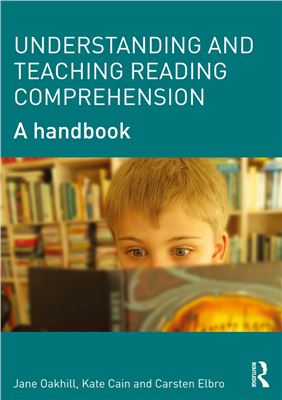

Most ebook files are in PDF format, so you can easily read them using various software such as Foxit Reader or directly on the Google Chrome browser.
Some ebook files are released by publishers in other formats such as .awz, .mobi, .epub, .fb2, etc. You may need to install specific software to read these formats on mobile/PC, such as Calibre.
Please read the tutorial at this link. https://ebooknice.com/page/post?id=faq
We offer FREE conversion to the popular formats you request; however, this may take some time. Therefore, right after payment, please email us, and we will try to provide the service as quickly as possible.
For some exceptional file formats or broken links (if any), please refrain from opening any disputes. Instead, email us first, and we will try to assist within a maximum of 6 hours.
EbookNice Team

Status:
Available0.0
0 reviewsThe ultimate aim of reading is not the process but to understand what we read & comprehension can take place at many different levels. There has been an increasing emphasis on the importance of reading comprehension in recent years but despite this there is very little written on this vital topic accessible to trainee & practicing teachers.
The Handbook presents an overview of recent findings on reading comprehension &comprehension problems in children. It provides a detailed examination of the characteristics of children who have reading comprehension difficulties, & examines ways in which comprehension can be supported & improved. It is accessibly written for students & professionals with no previous background in the psychology of reading or reading problems.
This indispensable handbook asks the question ‘what is comprehension?’ The authors consider comprehension of different units of language: understanding single words, sentences, & connected prose & outline what readers (& listeners) have to do to successfully understand an extended text. This book also considers comprehension for different purposes, in particular reading for pleasure& reading to learn & explores how reader characteristics such as interest & motivation can influence the comprehension process.
Different skills contribute to successful reading comprehension. These include word reading ability, vocabulary knowledge, syntactic skills, memory, & discourse level skills such as the ability to make inferences, knowledge about text structure, & metacognitive skills. The authors discuss how each one contributes to the development of reading comprehension skill & how the development of these skills (or their precursors) in pre-readers, provides the foundation for reading comprehension development.
Areas covered include: